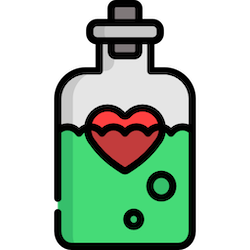Forgiving someone who has caused you pain, slighted you, disrespected you, manipulated you, ignored you, or insulted you can be really difficult.
Sometimes the pain inflicted is simply too great – even after the tincture of time has dulled the acute trauma. But sometimes the slight or insult was not intentional – just an act of poor judgment or insensitivity. And sometimes, even after you confront the perpetrator and asked for redress, your feelings go unacknowledged or the misdeeds continue. Under these circumstances, it is understandable that the resentment escalates and the relationship progressively sours. You stew, fester, and ruminate on the wrongs that have been committed. Your negative feelings magnify. Forgiveness seems impossible.
But here’s the thing. Harboring ill will toward someone, rehashing the wrongdoer’s “crimes” over and over again in your mind, isn’t healthy. It only prolongs the trauma. It will take a toll on you mentally and physically. Negative thoughts reduce your happiness and, if excessive, can become intrusive and debilitating. Happy people are more forgiving … and forgiveness can boost self-esteem, reduce anxiety, and lower blood pressure and cortisol levels (markers of physiological stress).
Forgiveness is something you do for yourself. It is not intended to relieve the people who have wronged you from their guilt. Forgiveness is not a pardon and it does not require reconciliation with the offender. Forgiveness does not mean the transgression is excused or condoned. To “forgive and forget” is misleading — the memory of the hurt isn’t erased. Rather, forgiveness is about reducing and, with time, eliminating feelings of ill will toward someone and discontinuing avoidance behaviors. Forgiveness is about shifting your mindset from resentment to wishing someone well and perhaps a desire to improve the relationship.
To forgive is to set a prisoner free and discover that the prisoner was you.
–Lewis Smedes
Lighten your heart. Read William Carlos Williams delightful poem This Is Just To Say.
Forgiveness is a Proven Strategy for a Happier Life
The empirical evidence strongly supports the notion that forgiveness improves our happiness and health. In several randomized, controlled studies, individuals who participated in forgiveness experiences are not only more likely to forgive but also have fewer negative emotions and are more hopeful. Here are a few forgiveness exercises, in order of difficulty, that have been formally evaluated:
- Appreciate being forgiven. Think of a time you’ve been forgiven for some harm you’ve caused. Do you think the other party benefited by forgiving you? Did you relationship improve? This can provide some insights into the benefits of forgiveness and a model to emulate.
- Write a letter of apology. Think about someone you’ve wronged and write them a letter. Describe what you did (or failed to do), acknowledge that it was wrong, and admit the harm it has cause the other person (and your relationship). If appropriate, indicate your desire to make amends or ask about what you can do to make things better. This activity will build your empathy and bolster your ability to forgive others.
- Imagine forgiveness. Imagine granting the offender forgiveness. See the encounter through her eyes and ears. How will you feel during the encounter? How will he respond to you? Consider charitable attributions including what explanation she might offer. See the individual as a whole person, not as someone solely defined by the transgression. Imagine letting go of your anger and hostility.
- Write a letter of forgiveness. Let go of your bitterness, anger, and blame by writing a letter. The individual who has harmed you may no longer be part of your life or a live. Writing a letter can be very difficult and reliving the trauma of the past may be too painful. You may become overwhelmed by negative emotions. Perhaps start with someone who has perpetrated something less painful to write about. Describe what has caused you hurt and how you have suffered. Describe what you hoped the person would have done instead. Explicitly state your resolve to forgive the offender. You are not required to deliver the letter but you may wish to connect with the offender in some way.
Forgiveness takes practice. So if you find forgiveness particularly difficult, start with some “easier”, less emotionally challenging situations. While some harms are truly horrific and you may never be able to truly forgive, most offenses are not the result of malice but honest mistakes or a lack of emotional intelligence. Try to develop empathy and understanding so that you can let go of your anger and hurt.
Holding onto anger is like grasping a hot coal with the intent of throwing it at someone else; you are the only one getting burned.
–Siddhārtha Gautama (Buddha)
Need to increase your flexibility and strength? Check out the Yoga Flow F = Forgiveness in the A to Z Wellbeing series on the Yoga Apothecary YouTube Channel. And be sure to subscribe.
Cheers-
Stuart
Dr. Stuart T. Haines
Professor of Pharmacy Practice
Editor-in-Chief, Wellbeing Elixir
Chief Education Officer (CEO)



